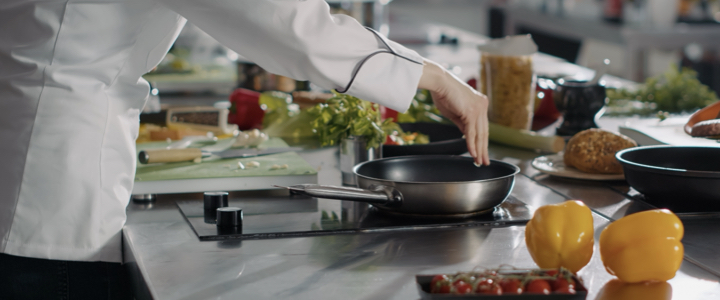
Sustainability in the HoReCa sector: environmentally sustainable practices
The hospitality industry, known as HoReCa (Hotels, Restaurants, and Cafés), is facing a period of remarkable growth and transformation, driven by innovation, growing environmental awareness, and the need to adopt more sustainable practices.
Investing in digitalisation and sustainable innovation implies renewing machinery, accessories and add-ons that are part of this sector, as well as engaging in eco-sustainability-oriented projects. In this context, one of the less explored but equally crucial aspects is the integration of environmentally friendly light indicators in HoReCa devices. In this article, we will explore how even small-scale lighting can contribute to the overall sustainability of a HoReCa device.
Specifically, we will talk about:
- Sustainability in HoReCa: a challenge for the sector
- Sustainability in HoReCa: what emerged at trade fairs
- Sustainability in the HoReca: focus on light indicators
Click on the button below and download the brochure with an overview of light indicator solutions for the HoReCa sector.
Sustainability in HoReCa: a challenge for the sector
Today, professionals in the HoReCa sector, known for its constant dynamism, face significant challenges. According to a 2023 report by the Business Intelligence Group, which involved a sample of 2,400 Italian restaurateurs, the growing importance of innovation and sustainability in this sector is evident. The main objective of any sustainable initiative in the hospitality industry is to reduce the environmental impact, save resources, and promote responsible management. This can be achieved through a number of practices, including but not limited to waste reduction, energy efficiency, and the choice of environmentally-friendly materials.
Sustainability in HoReCa: what emerged at trade fairs
The Host 2023 trade fair shone a spotlight on sustainability. Companies in the sector exhibited innovative and technological projects, united by the search for sustainable practices. The technological solutions presented will continue to evolve. There will be an improvement in user interfaces, making them increasingly intuitive, and the spread of interconnected systems that can be managed remotely. The trend will continue towards the automation of routine processes, enabling a more efficient use of human resources. Versatile and multifunctional machines are expected to be implemented, while devices will increasingly move towards low energy consumption, with parts made from reusable or recycled materials, in line with the principles of circular economy.
Sustainability also guided the 2024 edition of SIGEP 2024, the International Trade Show of Artisan Gelato, Pastry, Bakery and the Coffee World, which took place in Rimini from 18 to 22 January. As well as entering the ice cream parlour, sustainability and digitalisation are also influencing the pastry sector, which is opening up to the plant-based products and experimenting with new horizons, including the use of artificial intelligence. There is also a trend towards conscious production processes in the field of chocolate, while the coffee sector is addressing an increasingly discerning consumer who prefers companies oriented towards sustainability.
The uniqueness of SIGEP is not limited to celebrating the latest gastronomic trends and innovations, but reflects a growing commitment to sustainability in HoReCa. Numerous participants and exhibitors at the fair have embraced environmentally sustainable practices, presenting innovative solutions to reduce the environmental impact of the industry. The event thus underlines the growing awareness and willingness to adopt responsible practices, helping to shape a more sustainable future for Hospitality.

Sustainability in the HoReca: focus on light indicators
Light indicators on HoReCa appliances, such as warning lights on kitchen appliances or status indicators on industrial machines, can contribute significantly to overall energy consumption. Here are some strategies to improve sustainability in this context:
- Energy efficiency: LED light indicators are an ideal choice to reduce energy consumption. LED technology enables low-energy consumption compared to conventional solutions, and a longer lifetime.
- Sustainable materials: opting for recyclable and environmentally-friendly materials in the production of light indicators is crucial. Selecting recycled or recyclable plastic or aluminium materials is a step in this direction.
- Modular design: a modular design makes for easy replacement of damaged parts instead of replacing the entire appliance, thus reducing waste.
In conclusion, designing an environmentally sustainable light indicator system in its own small way not only reduces environmental impact, but is a crucial step towards a greener and more responsible industry.
Would you like to receive more information on the sustainable light indicator solutions offered by SLIM? Click on the button below and contact one of our experts!

